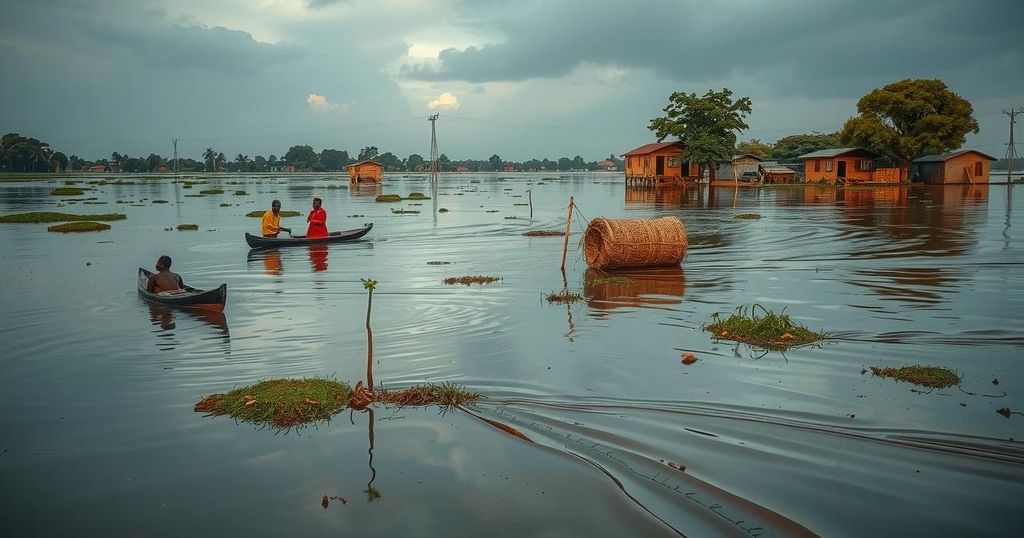Flooding in South Sudan has displaced over 300,000 people and impacted 1.4 million. The affected regions, particularly Jonglei and Northern Bahr el Ghazal, also face a surge in malaria cases. The situation is exacerbated by climate change and demands international humanitarian assistance.
Recent flooding in South Sudan has had a catastrophic impact, affecting approximately 1.4 million individuals and displacing over 300,000 people, as reported by the United Nations. The floods are particularly devastating in the Jonglei and Northern Bahr el Ghazal states, which together account for more than 51 percent of those affected. Additionally, a concerning surge in malaria cases has emerged in several flooded regions, further straining an already overburdened health system. According to the United Nations Office for the Coordination of Humanitarian Affairs (OCHA), this crisis has escalated due to persistent heavy rainfall since May 2024, culminating in significant flooding caused by the Nile River overflowing. As a result, many homes have sustained damage, livestock have perished, and crops have been destroyed, exacerbating the humanitarian situation. A notable assessment this week identified an additional 1,720 individuals displaced by flooding in the Mangalla area, Juba County, Central Equatoria State. The situation is exacerbated by the increasing threat of climate change, as noted by a 2021 UNICEF report, which stated that annual floods affect between 750,000 and over 1 million people in South Sudan. The health ramifications are stark, with the rise of malaria cases reported across various states, further complicating the humanitarian response and recovery efforts. The ongoing emergency demands robust international and local support to mitigate the dire consequences for affected populations.
The floods in South Sudan have emerged as a significant humanitarian crisis, heavily impacted by consecutive years of extreme rainfall and climate-related issues. The United Nations reports that flooding not only displaces large populations but also threatens health, agriculture, and livelihoods. With the compounding effects of climate change, these floods have become increasingly frequent and severe. The humanitarian response is critically needed to address both immediate needs and long-term recovery objectives to build resilience against future disasters.
The flooding in South Sudan has resulted in the displacement of over 300,000 individuals, with approximately 1.4 million affected across several states. The escalation of malaria cases poses a significant public health risk, further complicating an already dire situation. Continuous and robust humanitarian support is essential to address the urgent needs of the displaced populations while laying the groundwork for future resilience amidst the impacts of climate change.
Original Source: www.aninews.in






